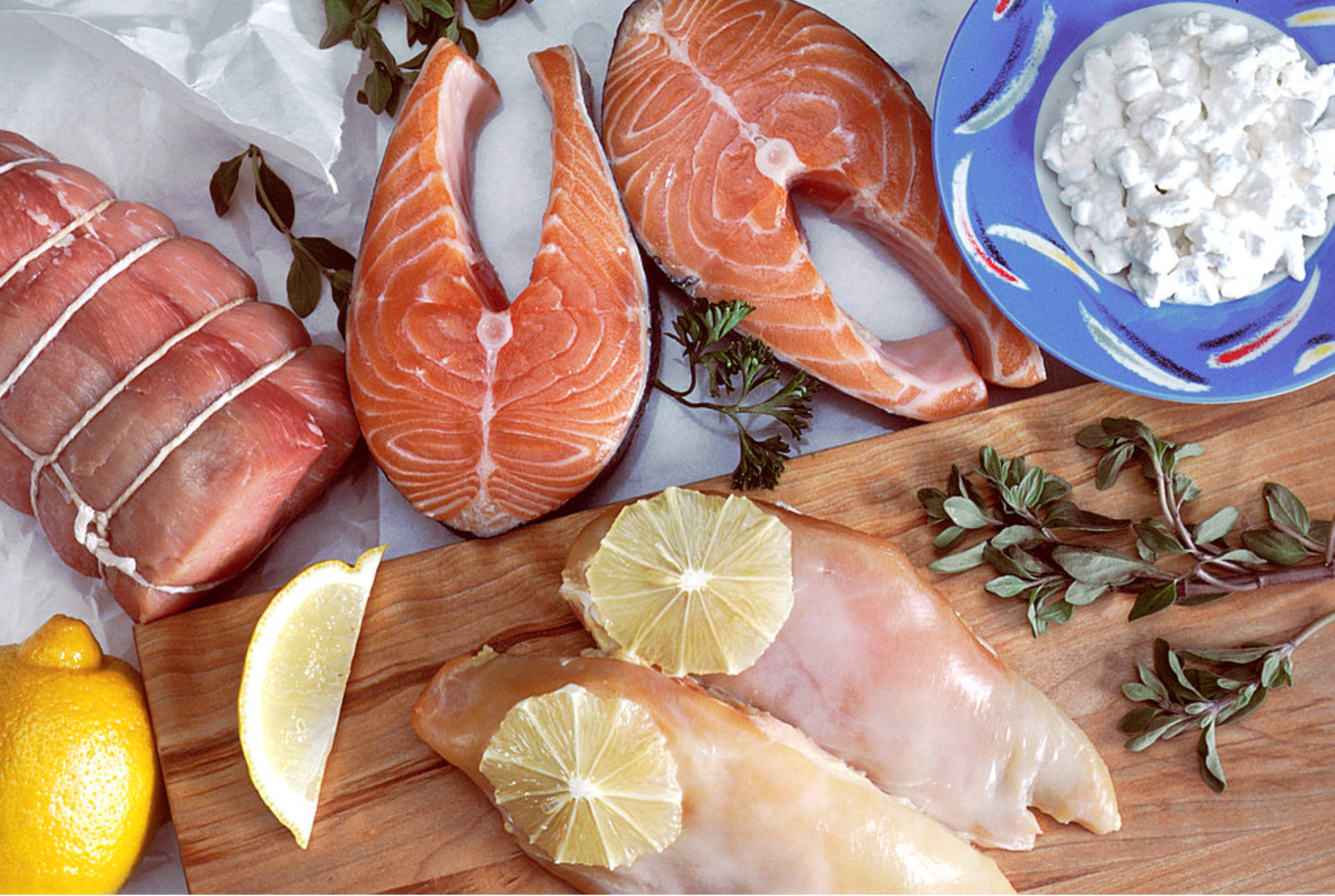Grain-free and low FODMAP frittatas.
Read Moreprotein
Why Protein and Why More?
Why protein is important for you, how much do you need according your weight, activity level, goals, and health status. Why you may need more than you think. And how much protein you need to help you lose weight and not muscle.
Read MoreThis is a bunch of information you don't really need in your life. Who remembers the Kreb Cycle after biology class? Okay, maybe me and a couple of other nerds... Anyhow, the important part of this map is that it helps explain why it is important to consume amino acids for creating energy - one of the many important factors for promoting healing and recovery!
Recover faster with this homemade drink!
When I am experiencing symptoms of fatigue, soreness, joint pain, and/or muscular cramps, I sometimes make this recovery drink. I am a supporter of a whole food diet and lifestyle for stress management, but sometimes I just need extra help. Thank goodness for supplements that can fill in the gaps when I successfully come crashing down.
After my personal decision to stop using NSAIDs a couple of years ago, I explored different options in supporting how I recover from overexercise, muscular cramps, headaches and joint pain. I found this homemade tonic to work most of the times. From experience, I find it works as well as NSAIDS (ex. ibruprofen). By the way, there is a ton of research that supports my experience.
This drink contains different amino acids (building blocks for protein) and a ton of micronutrients (ex. antioxidants). As always, use this drink as a supplement to a well-balanced diet and lifestyle that is appropriate for you! Supplements do not replace eating whole foods and lifestyle habits the same way.
As a mindful tip, I encourage you to notice how you feel before you drink this mixture and then how you feel an hour afterwards. For me, I start to feel better in a matter of minutes after drinking this concoction. I have played around with the ratios according to how I feel. Feel free to adjust the ratios to work for you too!
Ingredients
- 1 -2 tsp of magnesium citrate; what is recommended by Natural Calm
- 1-2 scoops of grass-fed collagen peptides (I use Vital Proteins)
- ½ a lemon squeezed for its juice or 2 slices of lemon
- 1 cup of cold or warm water, your favorite smoothie, or juice.
Optional Ingredients
- 1 tsp of turmeric powder
- 1 tsp of freshly grated ginger
- Feel free to use the Liver Support Shot recipe from my blog and add this part to the drink.
Directions
Blend the ingredients in a large glass or blender. The magnesium may bubble up, especially when you add the collagen peptides. Make sure you use a glass that has enough clearance so the magnesium or collagen peptides don't spill over.
Why I use these ingredients?
Magnesium
- It is the 2nd most common mineral in cells.
- 60% of it is found in bones.
- It co-works with calcium and phosphorus.
- One of its main function is to activate enzymes (a catalyst for cellular chemical functions).
- It maintains electrical charges in cell, especially in muscles and nerves.
- It is involved in energy production (Kreb cycle), protein formation, and cellular replication.
- When low, mental confusion, irritability, weakness, and heart disturbances can occur.
- Issues in nerve conduction and muscle contraction, including muscle cramping, headaches, loss of appetite, insomnia, and predisposition to stress can occur when deficient.
- Food sources of magnesium include seaweed (highest in kelp), nuts, liver, whole grains, tofu, and leafy greens.
Collagen Peptides
- It contains amino acids that are building blocks for making proteins. Proteins create body structures (muscle, hair, tendons, and ligaments), enzymes, hormones, and DNA.
- One of the amino acids collagen peptides contain is called glycine, an amino acid that helps make glutathione. Glutathione is a powerful antioxidant and detoxifier. You can find glutathione in foods such as asparagus, avocados, and walnuts.
Vitamin C
- It is important for wound healing, healthy gums, and can reduce the ease of bruising.
- It plays an important role in collagen production.
- It can boost immunity.
- It is found in peppers, broccoli, Brussels sprouts, and citrus fruits.
Turmeric powder
- It is anti-inflammatory.
- Curcumin, what makes turmeric yellow, has been shown in research studies to work similiarly to drugs such as hydrocortisone, phenylbutazone, and OTC anti-inflammatory products like ibuprofen, without the toxic side-effects. Some research has shown that 400 mg of curcumin may have the same impact as 400 mg of ibuprofen on subjects with arthritis.
- Curcumin has been associated with improvements in morning stiffness, walking time, and joint swelling for patients with RA.
- It may inhibit colon cancer in some cases.
- It may help in the prevention of heart disease; reducing the amount of cholesterol and the oxidation of cholesterol.
- It may help with the prevention and progression of Alzheimer and MS.
Fresh ginger
- It can sooth gastrointestinal distress via antioxidants; can inhibit the formation of inflammatory compounds.
- It contains gingerols that are anti-inflammatory, which may reduce pain in people with osteoarthritis and rheumatoid arthritis by inhibiting the production of inflammatory cytokines.
- 75% of patients with arthritis and 100% of patients with muscular discomfort experience relief in pain or swelling (with the dosage of 500-1,000 mg/day or more).
- Fresh ginger may be more effective since it contains active enzymes.
Reference
Murray, M. Pizzorno, J. Pizzorno, Lara. (2005). The Encyclopedia Of Healing Foods. New York, New York: Atria Books. Murray, M. Pizzorno, J. Pizzorno, Lara. The Encyclopedia Of Healing Foods.
6/30/16 Retrieved from http://philschatz.com/biology-book/contents/m44441.html


